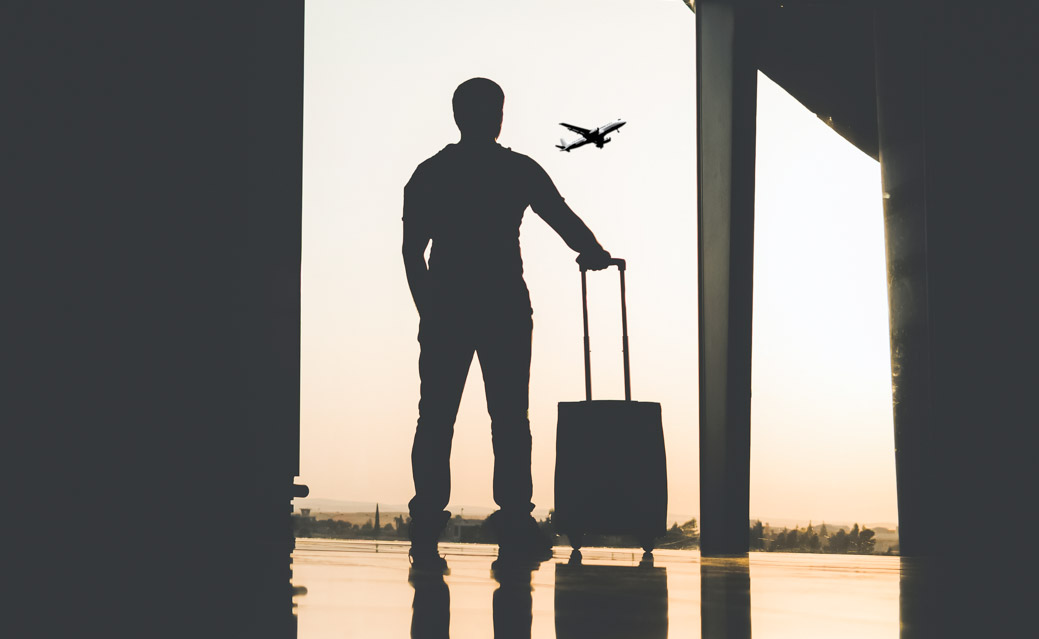Here’s why you should plan your next trip alone
After being trapped in our own homes for the last couple of years, I realized how much I miss my friends and travelling.
Now that the majority of Covid-19 restrictions around the world are lifted, my friends and I are planning our holidays again to make sure we don’t spend another one sulking around the internet. The last thing we want is to waste more precious time at home. But, travelling can mean a lot of things. It can be all the way across the globe in Asia, across your home country in a different province, or even a weekend getaway a few hours out of town. In fact, travelling isn’t about where you go, but rather, what you make of your journey and destination.
The moment I sat down and planned my holidays, I tried to come up with a list of who to bring. But then I thought, why go through all the trouble when I could pack my bags and go alone? When we plan for our holidays or decide to go on an adventure somewhere, the first thing that comes to mind is “who do I ask to come with me?” Before you answer that question, I want you to consider keeping that invite to yourself.
You might be wondering: why would I do that? Isn’t it more fun to bring friends? Yes. But there’s nothing wrong with travelling alone either. With technology being so advanced right now, we can contact anyone with the press of a button. We are so used to this on-demand interconnectedness that we forget how to be truly alone.
“There’s a difference in being alone and feeling lonely. In an existential sense, studies show that having friends and family help us feel connected and part of something greater,” says Mariam Ayoub, a Psychology professor at the University of Toronto Mississauga. She teaches PSY343: Theories of Psychotherapy, a course that explores the theories and approaches to psychological treatment for personality and behavioural disorders. “Self-exploration is a key factor in psychotherapy. Travelling alone allows you to listen to your inner mind about what you want to do or how your experiences make you feel. There are multiple parallels between the two that speaks to the benefits of travelling alone,” explains Professor Ayoub.
We are social creatures, and our obsession with being around others stems far back into our evolution. Being connected to others keeps us healthy and safe. Today, the idea of comradery is constantly being reinforced in everything we see, especially media. The Avengers must assemble to defeat Thanos, the lone soldier realises that his success comes from his brothers in arms, our favourite rom-com lead realizes their partner will solve all their problems. We instill the importance of being in a group so much that we forget how to enjoy the company of ourselves.
My experience with travelling alone came as an accident. When I was 18, I went on a self-funded graduation trip to Korea with a couple of friends. At the time, all of them were into K-pop, and one day they decided to wait for seven hours to take a blurry picture of an idol—causing us to miss the last train back to our Airbnb. The next day, I learned we were doing the same thing again. At this point, I was presented with two choices: either waste another day or break away from the group and do what I enjoy doing.
When we travel on our own, certain thoughts pop into our heads and cause us to ruminate. Rumination is our enemy and happens when little concerns spiral out of proportion. You might start to worry more about losing your wallet now that you’re alone. Or what to do if your phone dies and your friend isn’t there to lend you theirs. These thoughts amplify without the safety of being surrounded by others. No one wants that, especially in a foreign country.
“Making your own decisions while travelling alone lets you better understand what makes you happy, angry, or sad,” states Professor Ayoub. “By the end of it, you feel proud and accomplished that all your positive experiences are guided by you. And that pride and accomplishment helps bolster your self-confidence, regain your sense of self-agency, and just be proud of being able to make your own decisions.”
It felt therapeutic to travel alone. Not only did I accept my friends’ two-day idol hunting, but I also gained insights into my personal problems. When I came back after exploring the city by myself for the day, I was hooked on the feeling of going on a solo adventure. I made sure every time I went anywhere, I would spend at least a few hours to myself exploring the area, away from the group if the opportunity allowed. During these times, I felt attuned to my surroundings. The scenery from the bus rides stayed with me and, to this day, I can still remember the feeling of being free from any restraints and seeing Korea in a different light. I chose where to go, what to eat, and when to do all those things without anyone holding me back. As Professor Ayoub puts it, I reclaimed that sense of self-agency.
Going on a trip alone isn’t just an adventure of itself, it’s also a part of rediscovering who you are. When done properly, it can even act as a form of therapy. “You [can] take some key lessons in therapy and apply it to travelling alone. For example, living in the moment, paying attention to how we react to experiences emotionally, physically, and cognitively,” concludes Professor Ayoub. “This works for any part of your life, but will definitely enhance your adventure alone.”
It doesn’t matter where you’re headed. Whether it’s a little cabin a couple hours out of town, or a three-week trek through Europe, it’s all about how you deal with the experience of being alone. Try revisiting places you’ve been—but by yourself. The scenery and buildings may look the same, but your mindset and experience might be different. Taking that trip alone and having yourself as company may scare you for the first few minutes, but when you complete that trip, know that you own the space in your mind you’ve carved out for yourself; that little piece of memory that belongs to you and just you.
Features Editor (Volume 50) — Louis graduated from UTM with a Bachelor of Science double majoring in Psychology and Professional Writing and Communication. He is currently in the field of UX/UI design, conducting research on how to improve user experience in apps and websites, designing websites for companies that are looking to branch online. As the Features Editor for Volume 50, Louis wants to bring the experience of reading enjoyable and informative for everyone. He hopes to showcase student voices and empower them through editing. When Louis is not at his computer designing websites or writing, he is opening Pokémon card packs chasing the Charizard or at the gym training his mind and body.


